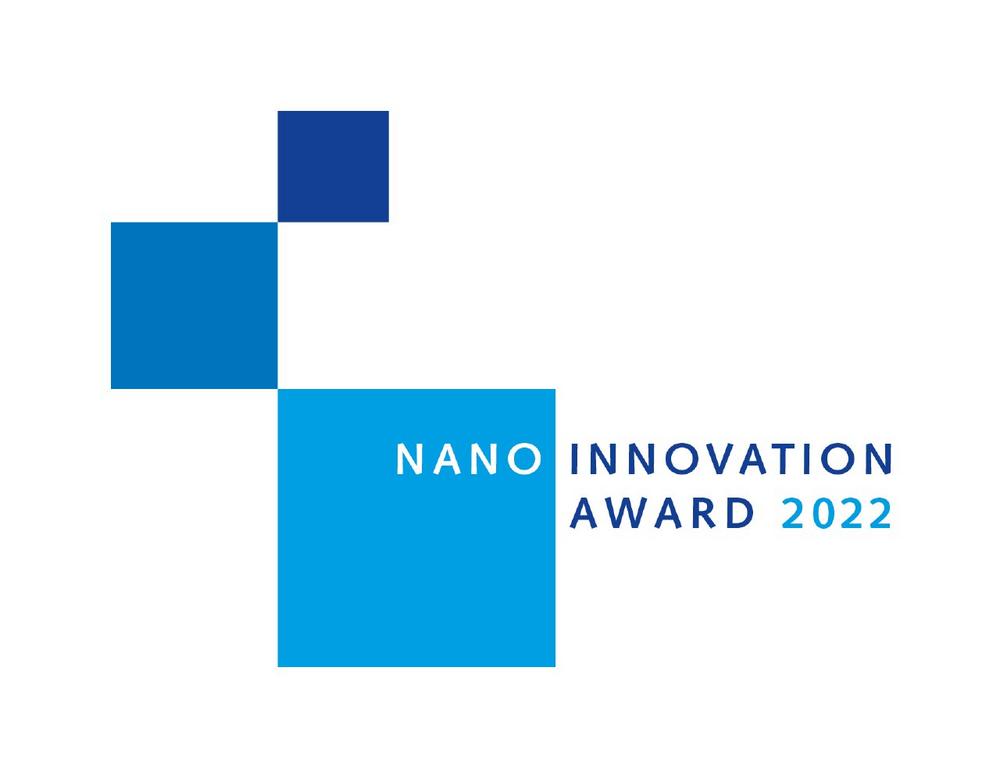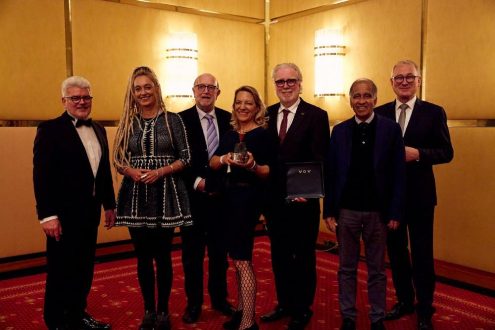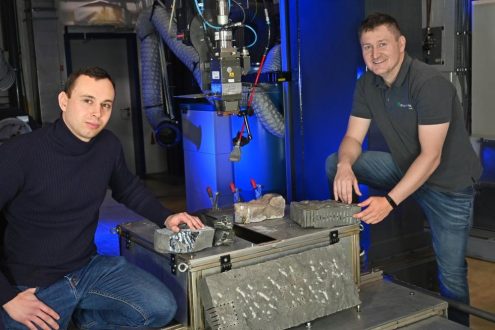
From a Logic Gate for Ultrafast Electronics to Miniaturized Optical Data Links -ibidi Sponsors the Nano Innovation Award 2022
The Nano Innovation Award focuses on innovation and application potential, in contrast to most science prizes, which honor excellent results in basic research. Since 2015, the prize money has been donated by four successful Center for NanoScience (CeNS) spin-offs, which are directly linked to the idea of the Nano Innovation Award through their own company history. The companies attocube systems AG, ibidi GmbH, Nanion Technologies GmbH, and NanoTemper Technologies GmbH have award ed talented and imaginative young scientists whose results are not only of interest for basic research, but at the same time promise novel technological applications.
The first prize went to Tobias Boolakee from Friedrich-Alexander-University Erlangen. Logic gates that switch binary signals 0 or 1 by using Boolean functions are a fundamental component of any computer architecture. Today’s electronic devices are limited in their clock speed primarily by the speed of capacitive signal propagation, and hence achieve clock rates of 1-10 GHz. Working in Professor Peter Hommelhoff’s group, Tobias Boolakee has now, for the first time, demonstrated a gate for extremely fast electronics based on a deep understanding of the physics in graphene and in graphene-gold interfaces when driven by ultrashort laser pulses.
The jury awarded the second prize to Maximilian Ochs from Julius-Maximilians-University of Würzburg. Information processing in computers is carried out by electronic circuits that can be miniaturized down to the nanometer range. The transmission of information over long distances, by contrast, is happening via photons in optical fibers where the wavelength of the light hinders miniaturization. Miniaturized optical data links would be a great help in overcoming the bandwidth bottleneck that occurs in modern computer chips. In his work, Maximilian Ochs developed an electrically-driven plasmonic Yagi-Uda nanoantenna that can be used as a miniaturized electron-photon converter, emitting photons in a well-defined, directional beam once excited by a tunneling electron. He has thus been able to show that it is possible to build extremely small electrically-driven photon sources and simple photon processing circuits that are directly connected to a nanoelectronic system, while maintaining the same level of miniaturization.
Third place went to Tim Schröder of LMU Munich. With his work in Philip Tinnefeld’s group, he succeeded in overcoming previous limitations of fluorescence correlation spectroscopy (FCS). To do so, he elegantly combined fluorescence lifetime information with intensity correlations. His ideas can be easily implemented in laboratories that use FCS in combination with time correlated single photon counting. In a collaborative project with GATTAquant GmbH, Tim Schröder developed nanobeads with highest brightness and maximum signal homogeneity (which were then named GATTA beads). This work will be of practical use to a broad scientific community, as well as to the drug discovery community that uses FCS to find binding partners.
“The formation of Nanion Technologies 20 years ago has been strongly supported by the entrepreneurial spirit of CeNS. We feel that CeNS, with its interdisciplinary communicative culture, is a very important community that helps to transfer excellent scientific research into successful business stories. The Nano Innovation Award is honoring the same thing: The transformation of scientific findings into real world applications. We were once again impressed by the variety of this year’s applications—and congratulate all winners and participants.” says Michael George, jury member and CTO Nanion Technologies.
About the Center for NanoScience (CeNS) – www.cens.de
The Center for NanoScience (CeNS) is a scientific institution at LMU Munich that promotes and coordinates interdisciplinary research in the field of nanoscience. CeNS spans various disciplines such as physics, chemistry, biochemistry, and pharmacy. In addition to LMU research groups, CeNS also brings together groups from TU Munich, the Max Planck Institute for Biochemistry, and other institutions in the Munich area.
ibidi GmbH, located in Gräfelfing near Munich, Germany, is a leading supplier of functional cell-based assays and products for cell microscopy. The ibidi range of products offers solutions for classic cell culturing, and also complex assays (e.g., angiogenesis, chemotaxis, and wound healing). Their products help facilitate an understanding of the development of various diseases and related therapies. ibidi’s customers are working in scientific institutions, industrial pharmacology, and biotechnology. Technology development at ibidi is supported by the BMBF (Bundesministerium für Bildung und Forschung). The products are sold to customers worldwide.
ibidi GmbH
Lochhamer Schlag 11
82166 Gräfelfing bei München
Telefon: +49 (89) 5204617-0
Telefax: +49 (89) 5204617-59
http://www.ibidi.de
Center for NanoScience (CeNS) LMU Münche
Telefon: +49 (89) 2180-5791
E-Mail: hennig@cens.de
Marketing
Telefon: +49 89 520 46 17-0
Fax: +49 (89) 5204617-59
E-Mail: info@ibidi.de
![]()




